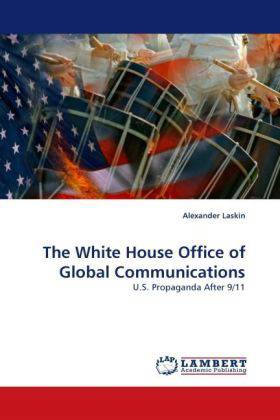
Je cadeautjes zeker op tijd in huis hebben voor de feestdagen? Kom langs in onze winkels en vind het perfecte geschenk!
- Afhalen na 1 uur in een winkel met voorraad
- Gratis thuislevering in België vanaf € 30
- Ruim aanbod met 7 miljoen producten
Je cadeautjes zeker op tijd in huis hebben voor de feestdagen? Kom langs in onze winkels en vind het perfecte geschenk!
- Afhalen na 1 uur in een winkel met voorraad
- Gratis thuislevering in België vanaf € 30
- Ruim aanbod met 7 miljoen producten
Zoeken
The White House Office of Global Communications
U.S. Propaganda After 9/11
Alexander Laskin
Paperback | Engels
€ 84,45
+ 168 punten
Omschrijving
September 11, 2001, meant the end of a generally peaceful era for the United States: the "post-cold-war" era. New threats emerged and the country found itself engaged in several wars simultaneously. To carry out a rhetorical response to these new challenges internationally, a new organization was created, the White House Office of Global Communications. However, the communicative efforts of the United States failed - although most of the world showed support for the United States immediately following 9/11, today the country is perceived negatively around the globe. As a result, it becomes vitally important for the United States to learn what mistakes the White House Office of Global Communications committed and, based on that, what the country should be doing differently to improve its image globally. This book can be useful for students and professionals in the areas of international communications, government relations, public diplomacy, public relations, and marketing.
Specificaties
Betrokkenen
- Auteur(s):
- Uitgeverij:
Inhoud
- Aantal bladzijden:
- 172
- Taal:
- Engels
Eigenschappen
- Productcode (EAN):
- 9783838354682
- Verschijningsdatum:
- 5/07/2010
- Uitvoering:
- Paperback
- Afmetingen:
- 150 mm x 220 mm
- Gewicht:
- 245 g

Alleen bij Standaard Boekhandel
+ 168 punten op je klantenkaart van Standaard Boekhandel
Beoordelingen
We publiceren alleen reviews die voldoen aan de voorwaarden voor reviews. Bekijk onze voorwaarden voor reviews.









